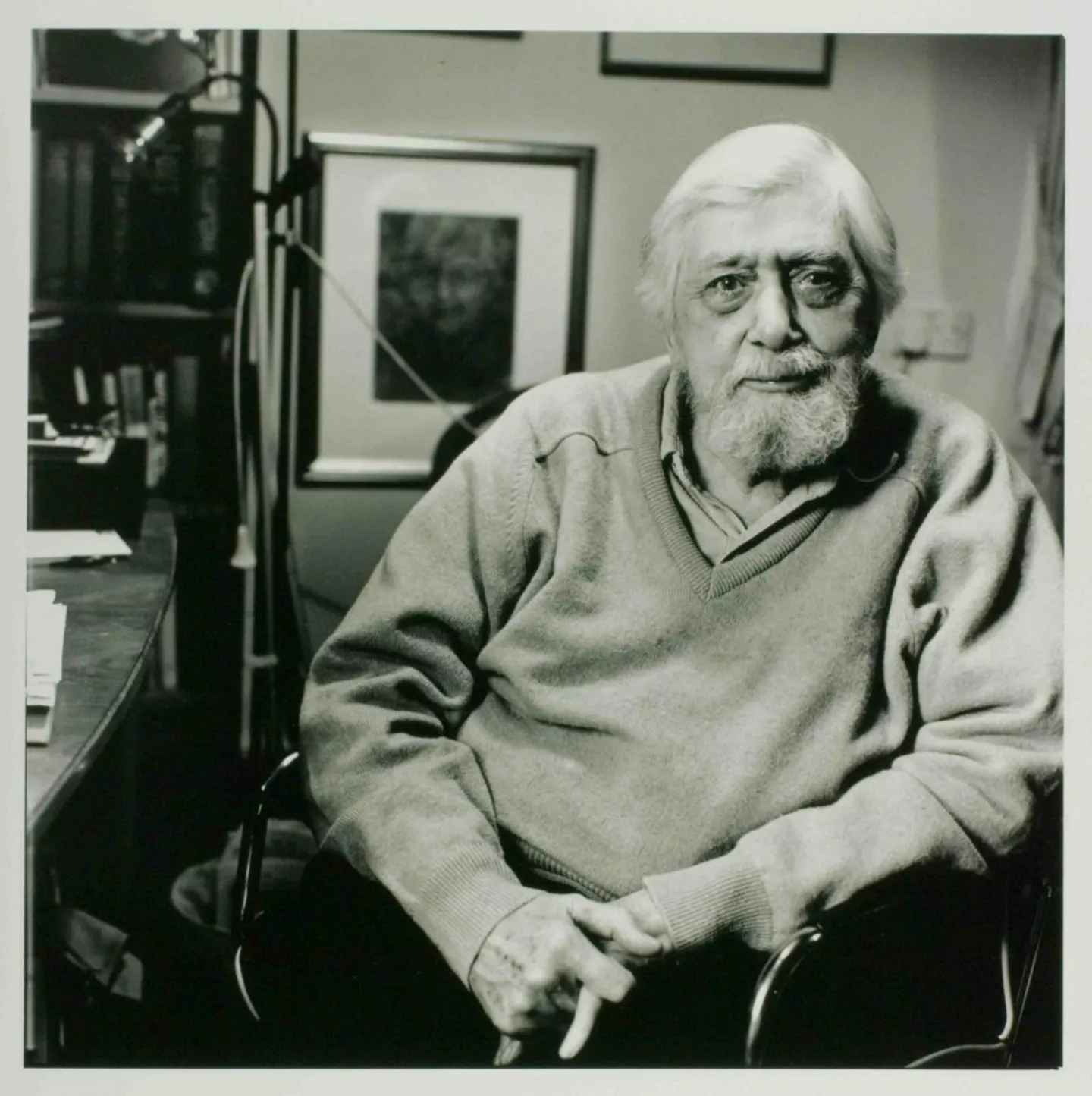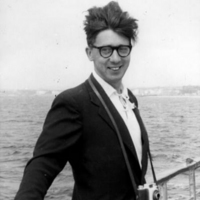
Edwin Morgan
Edwin George Morgan (27 April 1920 – 17 August 2010) was a Scottish poet and translator who was associated with the Scottish Renaissance. He is widely recognised as one of the foremost Scottish poets of the 20th century. In 1999, Morgan was made the first Glasgow Poet Laureate. In 2004 he was named as the first Scottish national poet: The Scots Makar. Morgan was born in Glasgow and grew up in Rutherglen. His parents were Presbyterian. As a child he was not surrounded by books, nor did he have any literary acquaintances. Schoolmates labelled him a swot. He convinced his parents to finance his membership of several book clubs in Glasgow. The Faber Book of Modern Verse (1936) was a “revelation” to him, he later said.
Edwin George Morgan (27 April 1920 – 17 August 2010) was a Scottish poet and translator who was associated with the Scottish Renaissance. He is widely recognised as one of the foremost Scottish poets of the 20th century. In 1999, Morgan was made the first Glasgow Poet Laureate. In 2004 he was named as the first Scottish national poet: The Scots Makar. Morgan was born in Glasgow and grew up in Rutherglen. His parents were Presbyterian. As a child he was not surrounded by books, nor did he have any literary acquaintances. Schoolmates labelled him a swot. He convinced his parents to finance his membership of several book clubs in Glasgow. The Faber Book of Modern Verse (1936) was a “revelation” to him, he later said.


